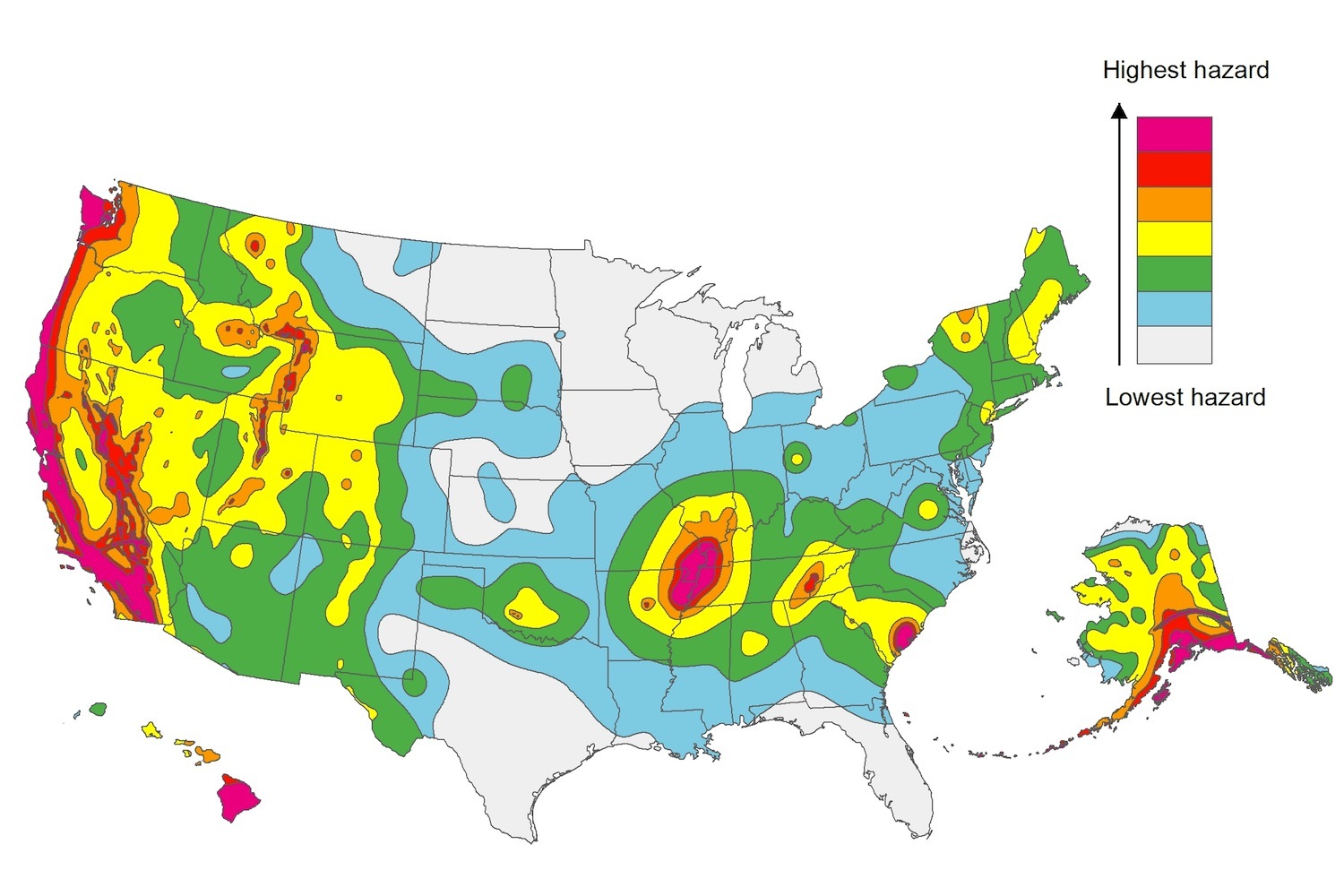The U.S. Geological Service recently released an update of U.S. National Seismic Hazard Maps that reflect the latest analysis of where future earthquakes will occur, how frequently they may occur, and their strength.
While all states have some potential for earthquakes, 42 of the 50 states have a reasonable chance of experiencing damaging ground shaking from an earthquake in the next 50 years. Sixteen states have a relatively high likelihood of experiencing damaging ground shaking. These states have historically experienced earthquakes with a magnitude 6 or greater. The hazard is especially high along the west coast, intermountain west, and in several active regions elsewhere such as near New Madrid, Mo., and near Charleston, S.C.
The eastern U.S. has the potential for larger and more damaging earthquakes than considered in previous maps and assessments. This finding is due to what scientists learned following the magnitude 5.8 earthquakes that struck Virginia in 2011. It was among the largest earthquakes to occur along the east coast in the last century, and indicated that even larger events in the region are possible.
The maps are used in risk analyses calculated using factors such as population levels, building exposure, and building construction practices. These assessments are used for establishing building codes, in the analysis of seismic risk for key structures, and in determining insurance rates. They can also aid emergency preparedness plans, and private property decisions such as re-evaluating one’s real estate and making it more resilient.
(http://www.usgs.gov/blogs/features/usgs_top_story/new-insight-on-the-nations-earthquake-hazards/)
Related Stories
Codes and Standards | Jul 8, 2021
New York City shuts down 322 construction sites for unsafe conditions
Action comes as inspectors visit more than 2,100 sites.
Codes and Standards | Jul 7, 2021
Bechtel, Nautilus partner on sustainable, high-performance data centers
Facilities would use 70% less power for cooling, eliminate consumption of drinking water.
Codes and Standards | Jul 7, 2021
Surfside condo collapse could spur new legislation
Natl. Institute of Standards and Technology is investigating.
Codes and Standards | Jul 7, 2021
Intl. Code Council appoints committees to lead energy code development
One-third of appointees are government regulators.
Codes and Standards | Jul 1, 2021
COVID-19 made payment delays to contractors much worse
Only one in ten companies is always getting paid in full.
Codes and Standards | Jun 30, 2021
New resource for public sector organizations to develop energy data management program
Dept. of Energy document contains more than 30 examples of successful implementations.
Codes and Standards | Jun 29, 2021
Biden China policy may spur more increased U.S. PV manufacturing capacity
Senate bill proposes advanced solar manufacturing production credit.
Codes and Standards | Jun 28, 2021
Local and state building energy performance standards aim to curb climate change
Owners must up the ante on operations and retrofits.
Codes and Standards | Jun 24, 2021
Biden Administration will restore ‘Waters of the U.S.’ protections ended by Trump
Early revision more likely to hold up in court, says legal expert.
Codes and Standards | Jun 23, 2021
Denver unveils renewable heating and cooling plan
City releases roadmap to decarbonizing existing homes and buildings.

















